Individual Stories of Excellence in Sport
Below are a snapshot of the stories documented in the Manitoba Aboriginal Aboriginal Sports & Recreation Council's first book, "A History of Excellence - The Untold Stories Of Manitoba's Indigenous Sport, detailing Indigenous excellence in sport in our province.
About A History of Excellence
Step into the rich tapestry of Manitoba's Indigenous sporting heritage with "A History of Excellence - The Untold Stories Of Manitoba's Indigenous Sport." Crafted by the insightful minds of Winnipeg author Scott Taylor and Carriera Lamoureux, MASRC's Director of Special Projects, this book is not just a compilation of facts; it's a journey through time, an exploration of the resilience, passion, and triumphs that have woven the fabric of Indigenous sports in Manitoba.
Dive deep into the narratives that echo through generations, shedding light on the untold stories that have shaped the sporting landscape of this vibrant province. From the thrill of victory to the challenges overcome, this book unveils a mosaic of experiences, celebrating the athletes, the communities, and the cultural significance embedded in each competition.
Join us in uncovering the layers of history that transcend mere statistics. This isn't just a book; it's an invitation to connect, to understand, and to honor the legacy of excellence within Manitoba's Indigenous sports. Welcome to a journey where every page tells a story, and every story is a testament to the indomitable spirit of Indigenous athletes.
Should you know of someone whose story deserves a spotlight, we invite you to connect with us at info@masrc.com. Because in this narrative of excellence, every individual deserves to be heard, acknowledged, and celebrated. Join us in honoring the unsung heroes who have left an indelible mark on Manitoba's sporting history.
Individual Stories
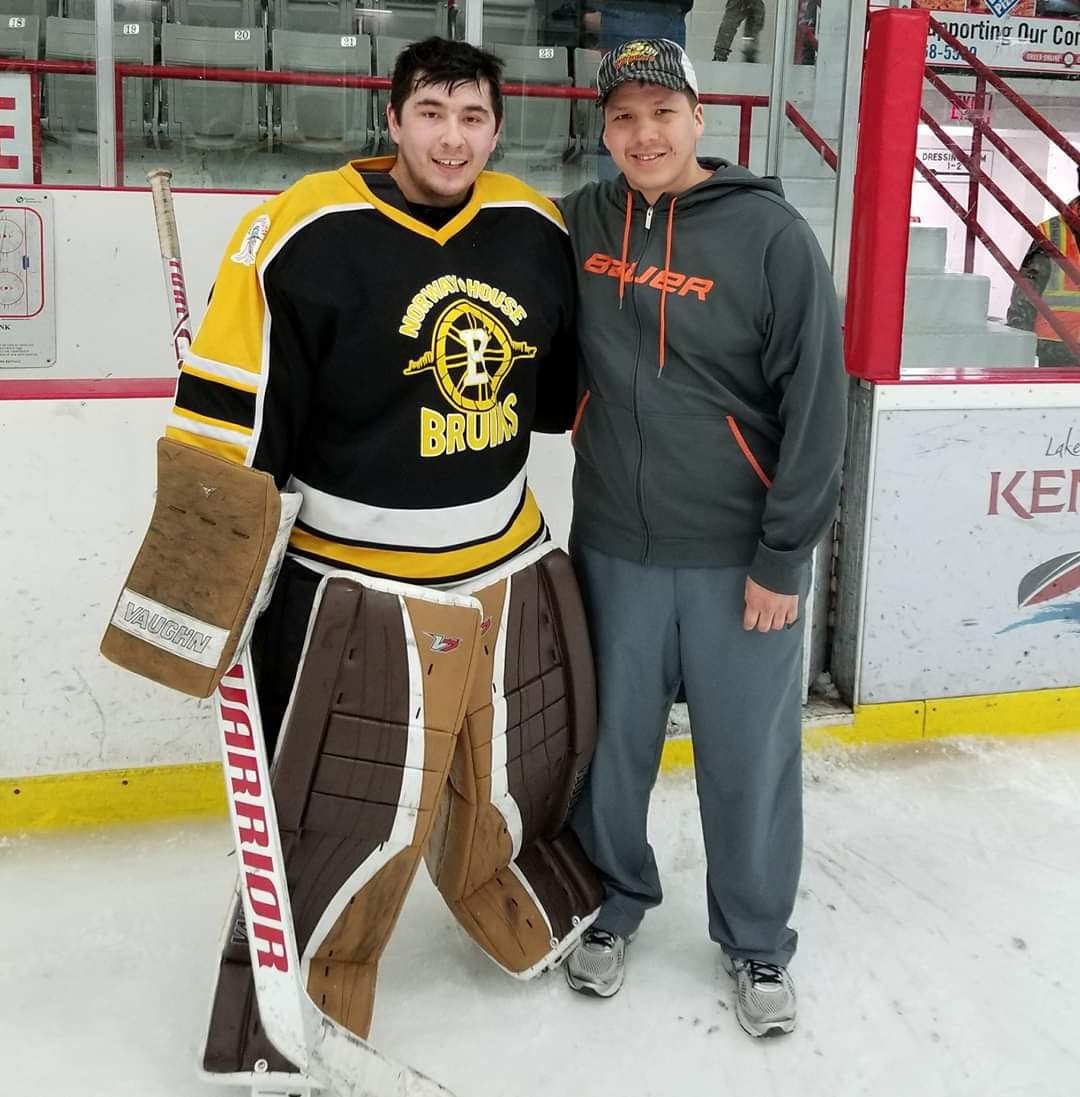
Goalie Edward "Sonny" Albert (left) with Brennan Hunter after a tournament in Kenora, Ontario.
Athletes appear in alphabetical order:
Edward "Sonny" Albert Hockey athlete/coach
Edward "Sonny" Albert is an accomplished goalie and coach who continues to lead and inspire Indigenous Manitoba athletes.
Born on the Kinosao Sipi Norway House Cree Nation in 1988, Albert went to high school in Norway House and Thompson. As a teen, he played every sport available to him. His father, Edward Albert Sr., who was recreation director in Norway House for almost 30 years, encouraged Sonny to become a goalie.
He played Junior A hockey with the Osoyoos Spurs (WHA) and senior hockey with Stonewall Flyers (SEMHL), Sagkeeng Braves (MSHL), Lac du Bonnet Blues (MSHL) and Norway House North Stars (NWSHL). He helped the North Stars, Blues and Gimli Wolves (MSHL) to win the Senior A Hockey Championships.
Albert competed for the Allan Cup with the Île-des-Chênes North Stars (CSHL) and the Norway House Bruins. He was in goal for the Dryden Ice Dogs (SIJHL) when they captured the 2008-2009 Bill Salonen Cup.
Albert went to the National Aboriginal Hockey Championships (NAHC) with Team Manitoba in 2005 and 2006. He was top NAHC goalie both years and made the 2006 NAHC All-Star team.
The Senior AA Norway House Bruins won the Fred Sasakamoose "Chief Thunderstick" National Hockey Championships in 2022.
Albert is a construction projects manager in Norway House. He has a degree in Recreation Management and a certificate in Indigenous Sport and Recreation.
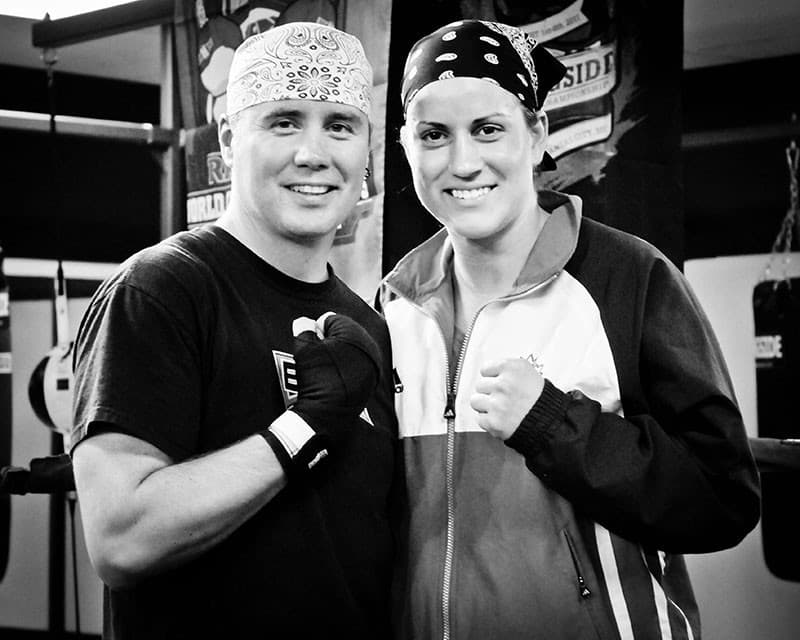
Kent Brown (left) fist bumps Mary Spence, Canada's first female Olympic boxer in 2012. (Photo: The Uniter)
Kent Brown Boxing coach/athlete/builder
Former Canadian Boxing Champion, Kent Brown, is an accomplished boxer, coach and community builder who guides Olympians, World Champions and young men and women to excellence in the sport.
Brown's training began at City Boxing Club in Winnipeg. In 2012, he opened his own East Kildonan boxing gym, Winnipeg Elite MMA Boxing Academy.
Brown was 16-time Provincial Champion. He became Canadian National Champion in 2000 and qualified for the Sydney Olympic Games. Brown won gold at the 2002 North American Indigenous Games and was the 2013 Ringside World Master's Champion.
Brown coached international Women's Champions and nine Ringside World Champions. He was provincial head coach in 2008 and 2010 and when the team won silver and two bronze medals at both the 2011 and 2019 Canada Winter Games.
A pipe carrier and sun dancer from Fisher River Cree Nation, Brown passes on his spiritual and cultural values through coaching. He is Manitoba Amateur Boxing Association president and head coach of Stingers Boxing Academy.
Brown started a boxing program in Cross Lake First Nation where a young woman he coached became 2015 Ringside World Champion. He was a founder of the Aboriginal Role Model Program, GEN7, and hosted APTN TV's "Fit First."
A University of Manitoba graduate, Brown is human resources director of Southern First Nations Network of Care.
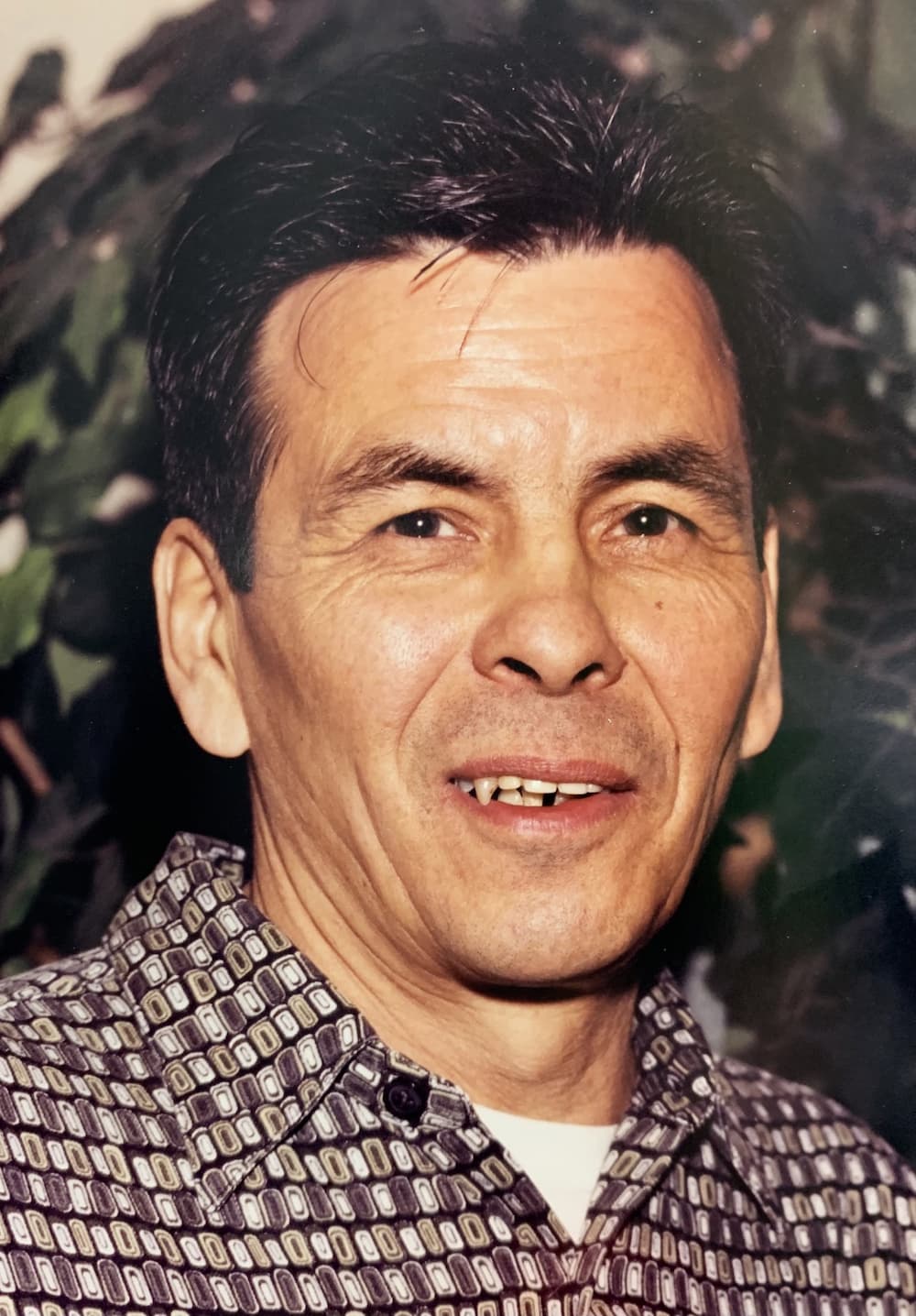
Ron Chartrand coach & community builder
Métis coach and community builder Ron Chartrand dedicated more than 30 years of his life to empowering Indigenous athletes, especially Métis girls and women. He coached one of the most successful female Indigenous softball teams in Manitoba history.
The Chartrand family lived on the east side of Winnipeg across from Morse Place Community Club, where Chartrand coached and volunteered.
Chartrand took on a a young boys' softball team who needed a coach, driving them from Winnipeg to the 1995 Fastpitch Nationals in Kitchener, Ontario where they won a bronze medal.
He hosted coaching clinics in the north for the Manitoba Aboriginal Sports and Recreation Council (MASRC) and began a city-based hockey and softball program designed to bring female Indigenous athletes together.
Chartrand coached the Northern Lights, an elite hockey and softball program. The team took gold in their first Canadian Native Fastball Championships in 1999. Then they won gold for Manitoba at the 2002 North American Indigenous Games.
After winning told in the 2006 Canadian Native Fastball Championships in Prince Albert, SK, the Northern Lights established their legacy by winning gold for the next three years in-a-row.
In 1999, Chartrand co-founded the Winnipeg Aboriginal Sport Achievement Centre (WASAC) a year-round program for children and youth.
He was president of the Manitoba Metis Federation (MMF) and began the Big HART Project; an after-school program to teach fiddling, jigging, square-dancing and guitar to young people.
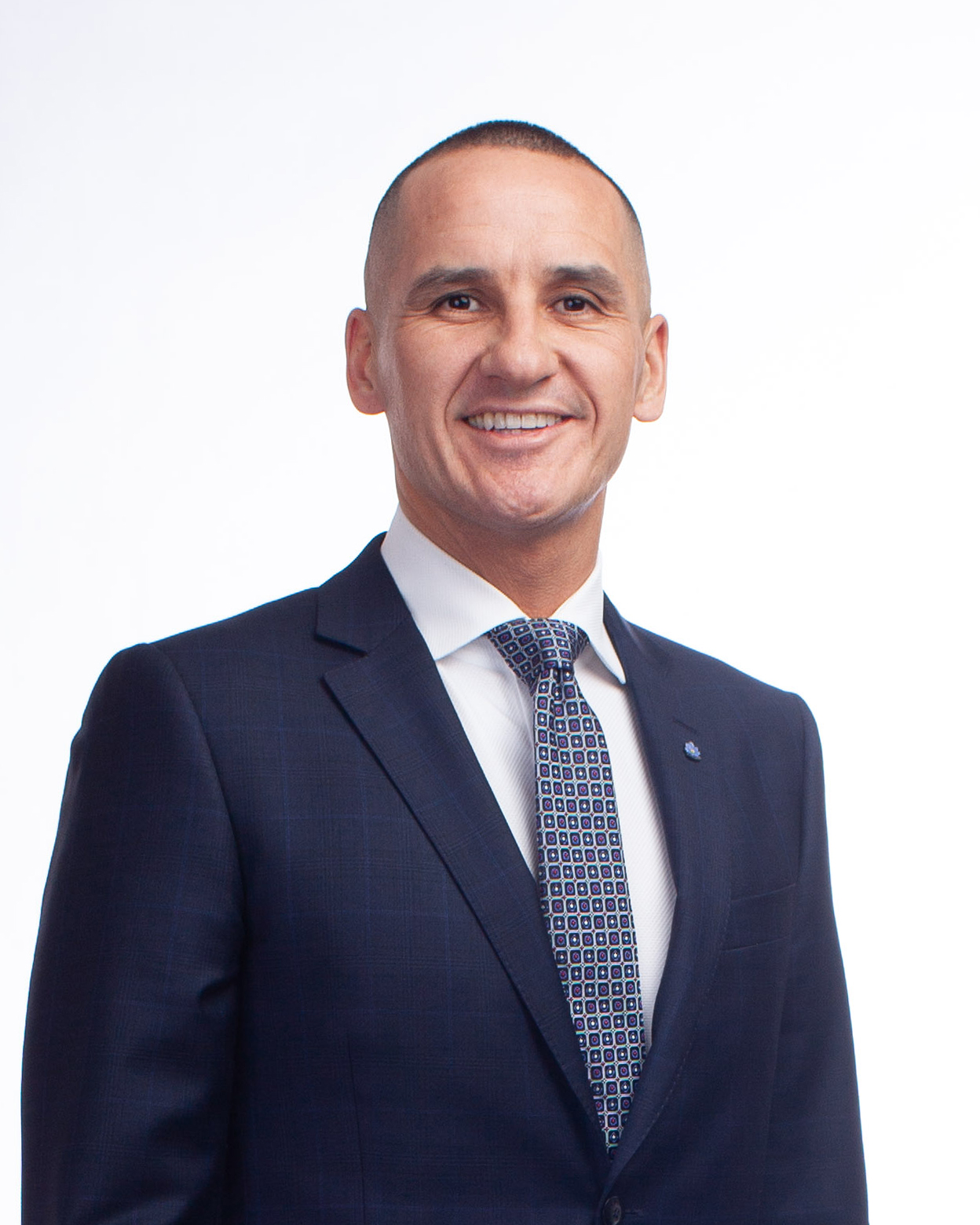
Kevin Chief Basketball
Kevin Chief started playing basketball for the University of Winnipeg Wesmen in 1993 and became a Wesmen Athletics All-Star athlete. He received the Great Plains First Team All-Star Award in the 1995-96 season.
Raised by a single father in the North End , he became the MLA for Point Douglas in 2011 and served for six years. He was appointed Minister of Children and Youth Opportunities in 2012. He received the 1994 Aboriginal Youth Achievement Award and the Premier's Volunteer Service Award.
Chief's life changed in Grade 7 when he went to a University of Winnipeg basketball camp on a $50-dollar scholarship.
"(My teachers) didn't just see hardship. They saw a lot of potential in me," Chief says.
He was only 18 when his father died and just starting to play university basketball. He says Wesmen coach Bill Wedlake kept him going.
At the University of Winnipeg, Chief earned a B.A. in Justice and Law Enforcement and a minor in Physical Activity and Sport Study.
He continues to support Indigenous youth through his work with the Winnipeg Aboriginal Sport Achievement Centre (WASAC), Chief Partnerships, True North Sports and Entertainment, the Centre for Aboriginal Human Resource Development and the Manitoba Aboriginal Sports and Recreation Council (MASRC).
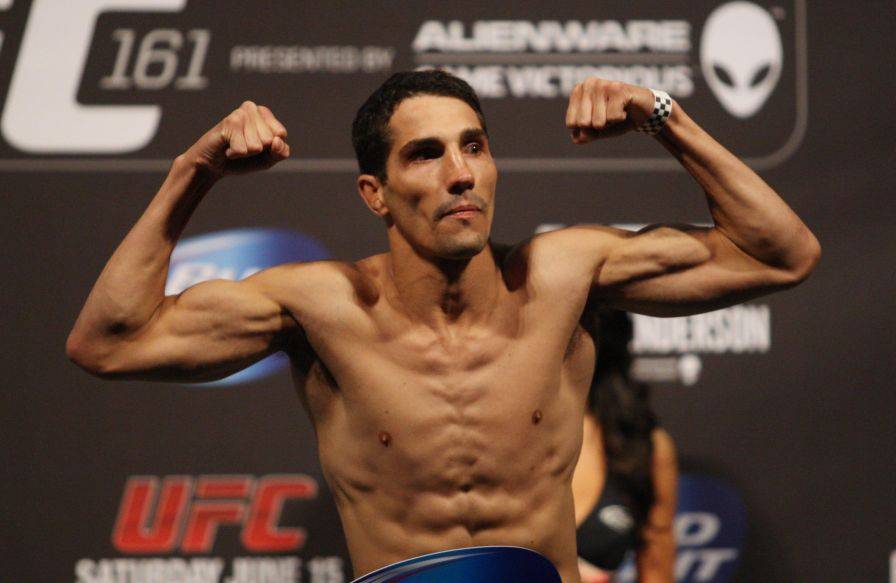
Roland Delorme Ultimate Fighter (UFC)
Winnipeg's Roland Delorme began his career as a bantamweight mixed martial artist and reached the highest level of Mixed Martial Arts anywhere in the world. He fought his first UFC bout at the MTS Centre defeating Edwin Figueroa by a unanimous decision in 2011. At 5-foot-9, 135-pounds, Delorme was part of the Ultimate Fighter Television Show, created to promote 145 and 135 weight classes.
Delorme trained in judo as a teenager and won gold in the singles event at the Canada Winter Games at 15. He tried kick boxing and joined the Winnipeg Academy of Mixed Martial Arts (WAMMA). Delorme credits coach Curtis Brigham and the men he trained with at WAMMA with his success.
"Without them, I'm nothing," Delorme says. "Curtis is a helluva coach. Six people have made UFC from Winnipeg, four are from WAMMA, training with Curtis Brigham."
(With permission of A History of Excellence: The Untold Stories of Manitoba's Indigenous Sport: C. Lamoureux, S. Taylor and J. Forsyth, 2021)
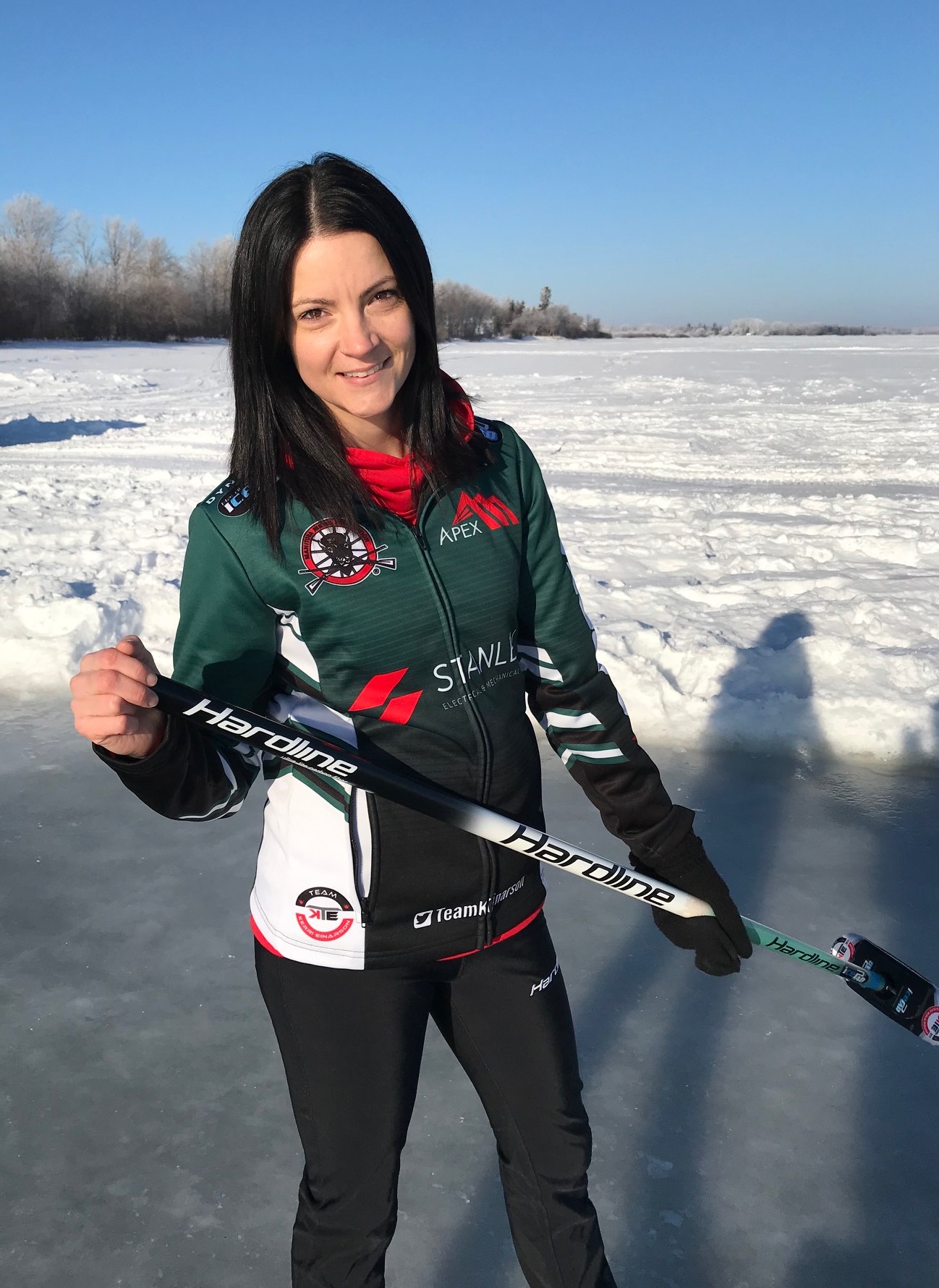
Kerri Einarson Curling
Kerri Einarson defended her national women's crown twice to become a three-time reigning National Women's Curling champion.
Einarson, and her Gimli Curling Club team of Val Sweeting, Shannon Birchard, and Briane Meilleur, were Scotties Tournament of Hearts national champions in 2020, 2021 and 2022.
She won two Provincial Mixed Curling championships in 2010 and 2013. In 2021, she teamed up with Newfoundland skip Brad Gushue to capture the Canadian Mixed Doubles Curling Championship but the World's championship was cancelled due to the COVID pandemic.
Einarson, a Métis woman, born Kerri Flett, grew up in Petersfield, MB. She started curling at eight-years-old.
The big break came for her team of Selena Kaatz, Liz Fyfe and Kristin MacCuish in 2015 when they captured a Grand Slam of Curling event and moved up to Tier II. Einarson took the 2016 Boost National on the World Curling Tour and her rink won their first Provincials together the same year. Einarson took the 2019 and 2021 Players' Championship.
Her uncle, Greg McAulay, and his B.C. rink won the Brier and the 2000 World Championship. After that, Einarson knew what she wanted: to win the World Championship and bring home Olympic gold.

Photograph courtesy of The Canadian Press.
Micheal Ferland Hockey
Micheal Ferland credits his mother, and many others, for his success as an NHL winger. Now he helps other young players follow their dreams.
Born in Swan River, Manitoba, Ferland grew up in Brandon, Manitoba. He played two years with the U18 AAA Wheat Kings and joined the Brandon Wheat Kings of the Western Hockey League (WHL) in 2009.
Known for his physical game, the six-foot-one, 217-pound forward was selected in the fifth round of the 2010 NHL entry draft (133rd overall) by the Calgary Flames. He was one of 41 players invited to Canada's National Junior Team Selection Camp.
After his overage season, Ferland was sent back to Brandon and was a first-round WHL pick, just in time for the 2013 Memorial Cup.
In 2014, Ferland made his NHL debut against the Nashville Predators. In his 2017-18 season, he scored 21 goals and 20 assists for the Calgary Flames.
After three full seasons with Calgary, he was traded to the Carolina Hurricanes in 2018. He played one year with Carolina and signed a four-year contract with the Vancouver Canucks. He suffered concussions during his last two NHL games of the 2020 season and returned to Brandon to recover.
Throughout his junior and pro career, Ferland coached at the Wheat Kings' hockey schools. When he retired from professional hockey in 2021, he joined the Western Canada Hockey Academy as an instructor.
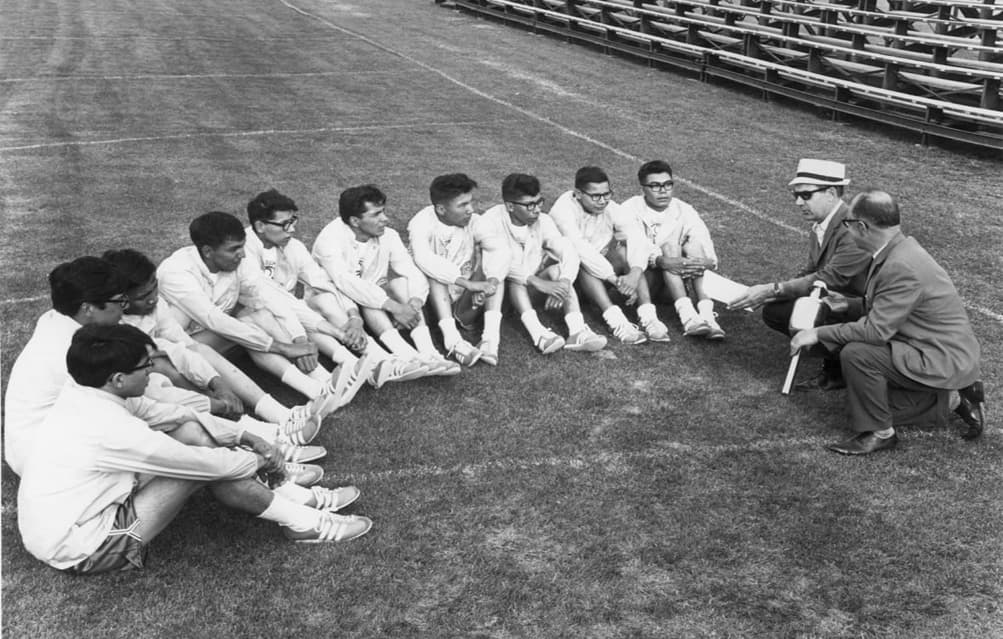
Photo courtesy of The Canadian Press.
The Frontrunners Long-distance runners
The story of the young relay team, the Frontrunners, represents the exceptional talent of Indigenous athletes often left unsung through decades of sport in Manitoba.
In 1967, as Winnipeg prepared to host the 5th Pan American Games, 10 Indigenous students completed the 800 km., five-day Pan American Games Torch Relay. They carried flags, and a torch which could never go out, from Minneapolis, Minn. to Winnipeg.
The runners came from Residential Schools in Saskatchewan and Manitoba: William Merasty, Peter Ballantyne Cree Nation, SK; Fred Harper, Red Sucker Lake First Nation; William Chippeway, Lake Manitoba First Nation; Patrick Bruyere, Sagkeeng First Nation; Charlie Nelson, Roseau River First Nation; Dave Courchene Jr., Sagkeeng First Nation, Charlie Bittern, Berens River First Nation; Russell Abraham, Sagkeeng First Nation; Milton Mallette, Koostatak (Fisher River Cree Nation); and John Nazzie, God's Lake First Nation.
In term of training, the boys were uniquely prepared.
The runners from Northern Manitoba: Bruyere, Courchene and Bittern, grew up running ahead of their fathers' dog sleds to make a trail for the dogs along the trap-line.
On the final stretch, The Frontrunners ran through a thunderstorm. But at the stadium, a non-Indigenous athlete accepted the torch and ran it inside without them.
In 1999, when Winnipeg again hosted the Games, the Frontrunners received a public apology. They entered the stadium in ceremonial canoes and Dave Courchene Jr. held the torch.
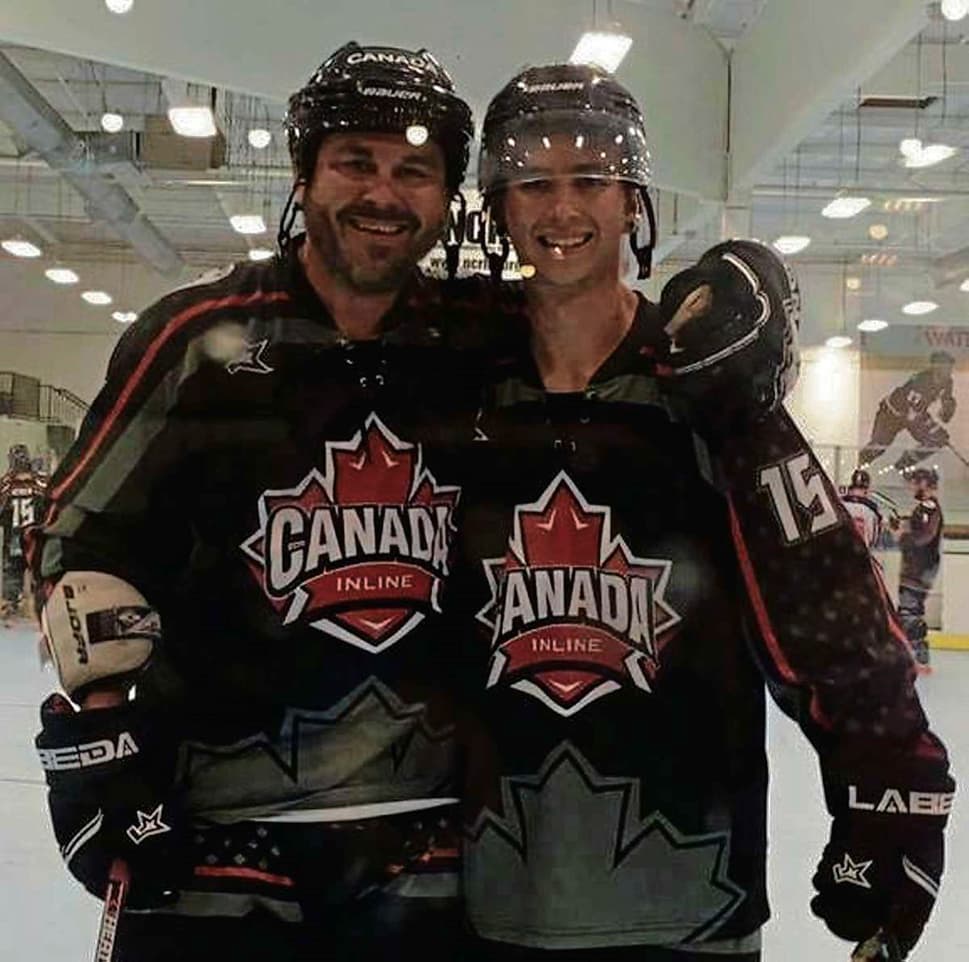
Mike Hunt (left) and son, Cameron, on the same national roller hockey team.
Michael Hunt Roller Hockey player/coach
Michael Hunt is regarded as one of Canada's greatest roller hockey players and one of the world's top Master's players.
Hunt played and coached for Team Canada for over 15 years. He won a bronze medal at the 2003 FIRS World Championship in Czechia, a silver medal at the 2004 Worlds in Canada, and silver at the 2005 World Games in Germany.
Hunt went to three world championships as a coach and won twice.
Born Hamilton, Ontario, the family moved to Winnipeg, his mother's home. He played with the John Taylor Pipers, the St. James Canucks (MMJHL) and the Winkler Royals (SEMSHL).
After moving to Boston, MA as a teen, he joined a DEK (ball) hockey league. He became a top player and put teams together in the North American Roller Hockey Championships.
Hunt was sales manager for Rink Rat, a roller hockey wheels manufacturer. His Team Rink Rat won seven straight national pro championships. Hunt was a 17-time National Champion and a seven-time National Professional Champion with Team Rink Rat.
In 2002, the roller hockey team he created won bronze at the 2003 World Championships. Hunt has played for Team Canada Masters since 2017.
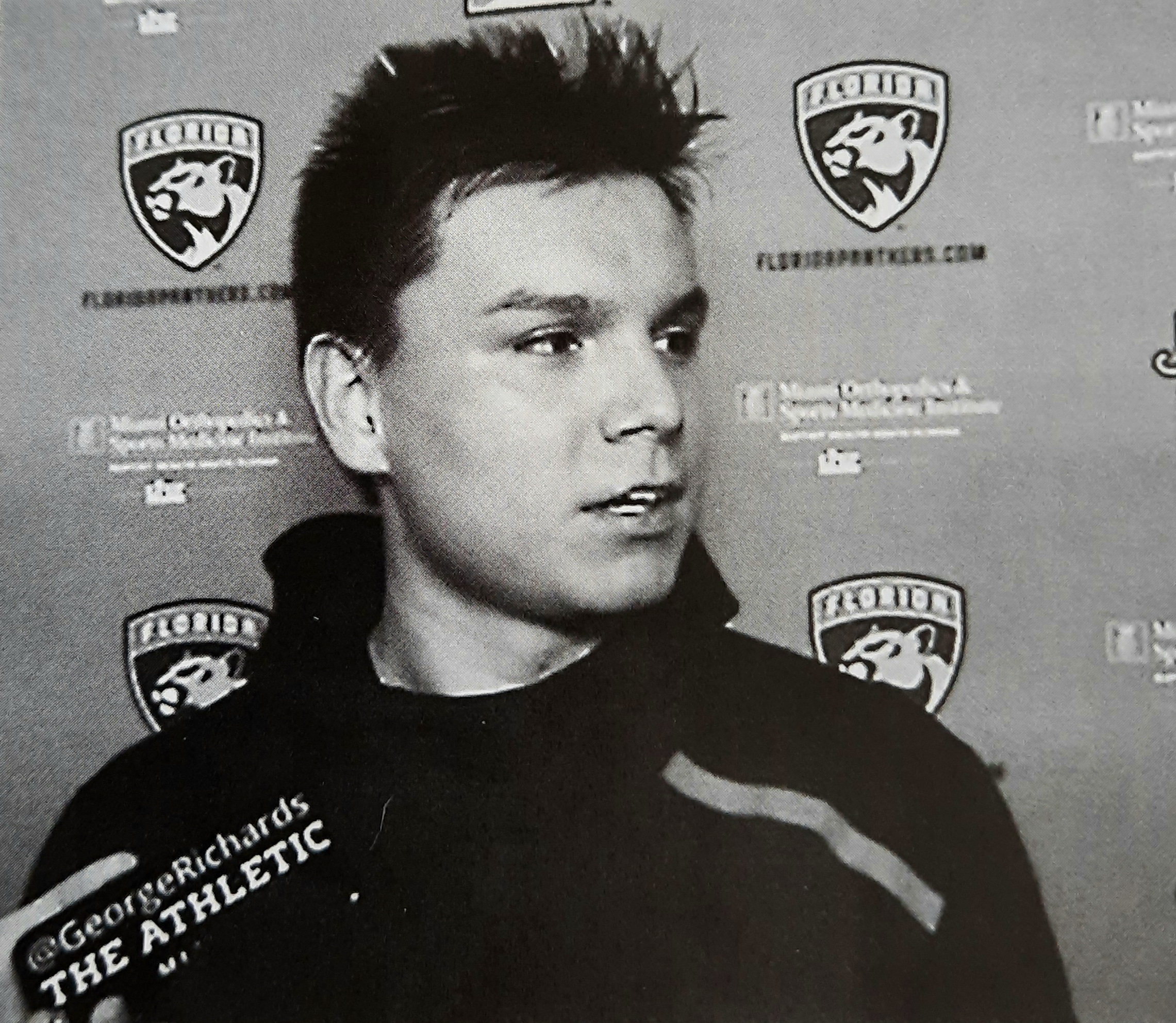
Photo by Larry Franz/University of Maine Athletics, Florida Panthers and James Carey Lauder
Brady Keeper Hockey
Brady Keeper, who was born in Cross Lake, Manitoba in 1996, is a defenceman for the Vancouver Canucks. He was the first person from Pimicikamak Cree Nation to play in the National Hockey League.
As a 16-year-old, Keeper was a member of the Keystone Junior Hockey League's Norway House North Stars in 2012-13.
He played one season with the Midget AAA Northstars in Thompson (2013-14) before advancing to the OCN Blizzard (MJHL) for four seasons. With OCN, Keeper won the Steve "Boomer" Hawrysh MVP Award, the Brian Kozak Trophy as the league's top defenceman, and was named a first-team all-star after the 2016-17 season.
During the 2014 National Aboriginal Hockey Championship, Keeper was noticed by NHL scouts.
He earned a scholarship to the University of Maine and played two seasons for the NCAA Division 1 Maine Black Bears. He completed his first professional season with the Springfield Thunderbirds (AHL).
Keeper was 24 when he signed with the Florida Panthers and made his NHL debut March 28, 2019 in a 5-2 win against the Ottawa Senators. He was re-signed to the Panthers in 2020. His NHL post-season debut was against the New York Islanders in their Stanley Cup Qualifier series.
He was signed with the Vancouver Canucks in 2021 after his third season with the Panthers. Keeper's debut season was postponed when he broke his leg on a blocked shot in practice.
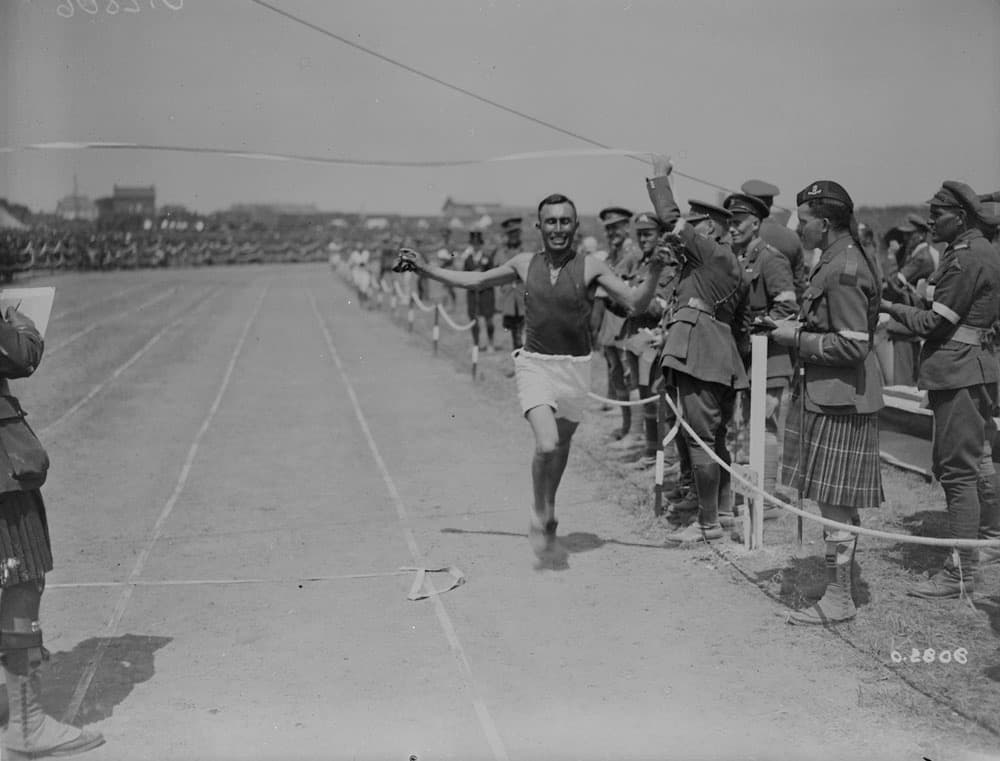
Joseph Keeper places first in the Mile and Three-Mile races at Corps Sport Day, Sept. 29, 1917. (Canadian Sport, June 1918) National Defence/Library & Archives Canada/PA-002734.
Joseph Keeper Olympic athlete/long-distance runner
Joseph Benjamin Keeper, who was inducted into the Olympic Hall of Fame in 1977, was one of Manitoba's most renowned Indigenous athletes.
Born in 1886 at Walker Lake, MB, Keeper was a member of Norway House Cree Nation. He discovered his passion for long-distance running as a day-student at the Brandon Indian Residential School.
Keeper won his first race, the 1908 District Indoor Championships, in Brandon. He moved to Winnipeg in 1910 and joined the North End Amateur Athletic Club (NEAAC). He won his first club race despite having a one-minute handicap against 47 other runners.
In 1911, Keeper set the fastest pace in the history of the NEAAC seven-mile race. He set a Canadian record for the Fort William Herald 10-mile race the same year.
Keeper qualified for the Olympic Trials in June 1912 and secured his place on the Canadian Olympic team. At the 1912 Stockholm Olympics, Keeper came fourth in the 10,000m final but set a Canadian time record that stood for more than 100 years.
At the start of the First World War, he joined the 107th Timber Wolf Pioneer Battalion of Winnipeg. Keeper was a dispatch carrier in France, running messages from the command centre to the battlefield. He received the Military Medal for "acts of bravery" in the Battle of Cambrai.
Keeper died in 1971 at the age of 85. An annual Norway House run is held in his memory.
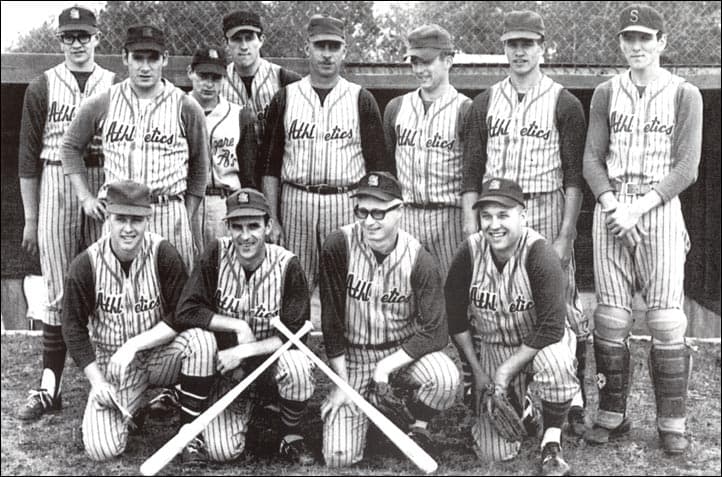
Pitcher Claude Lambert (first row, second from left) with teammates on the St. Lazare Athletics of St. Lazare, Manitoba in 1968.
Claude Lambert Baseball
Claude Lambert, born December 9, 1945 in the Métis community of St. Laurent, became an accomplished Major League Baseball pitcher, even pitching against the great Nolan Ryan.
Lambert played with the Warren, Manitoba team in the Winnipeg Senior League. In 1962, he was the winning pitcher in the All-Star Game and the final of the Canadian Junior Baseball Championship.
Lambert was 19 years-old when the 1965 Canadian Junior Baseball Championship was held in Winnipeg. Impressed with his pitching, the Houston Astros signed him to a contract.
Lambert pitched for the Astros' system for three seasons. He played for the Bradenton Astros of the Florida State Rookie League and was promoted to the Salisbury Astros in the Class-A Western Carolinas League.
In his first full season, he led all Astro pitchers, but was released. The Atlanta organization claimed him in 1967, and he went to the Class-A Lexington Braves.
At 21, a rotator cuff injury ended his career. In 1968, he returned to Manitoba and played out-field for the St. Lazare Athletics, leading the league in hitting and home runs.
Lambert played for Transcona and represented Manitoba at the 1969 Canada Summer Games. He returned to St. Laurent winning numerous Interlake Senior League championships.
Lambert was inducted into the Manitoba Baseball Hall of Fame in 2002.
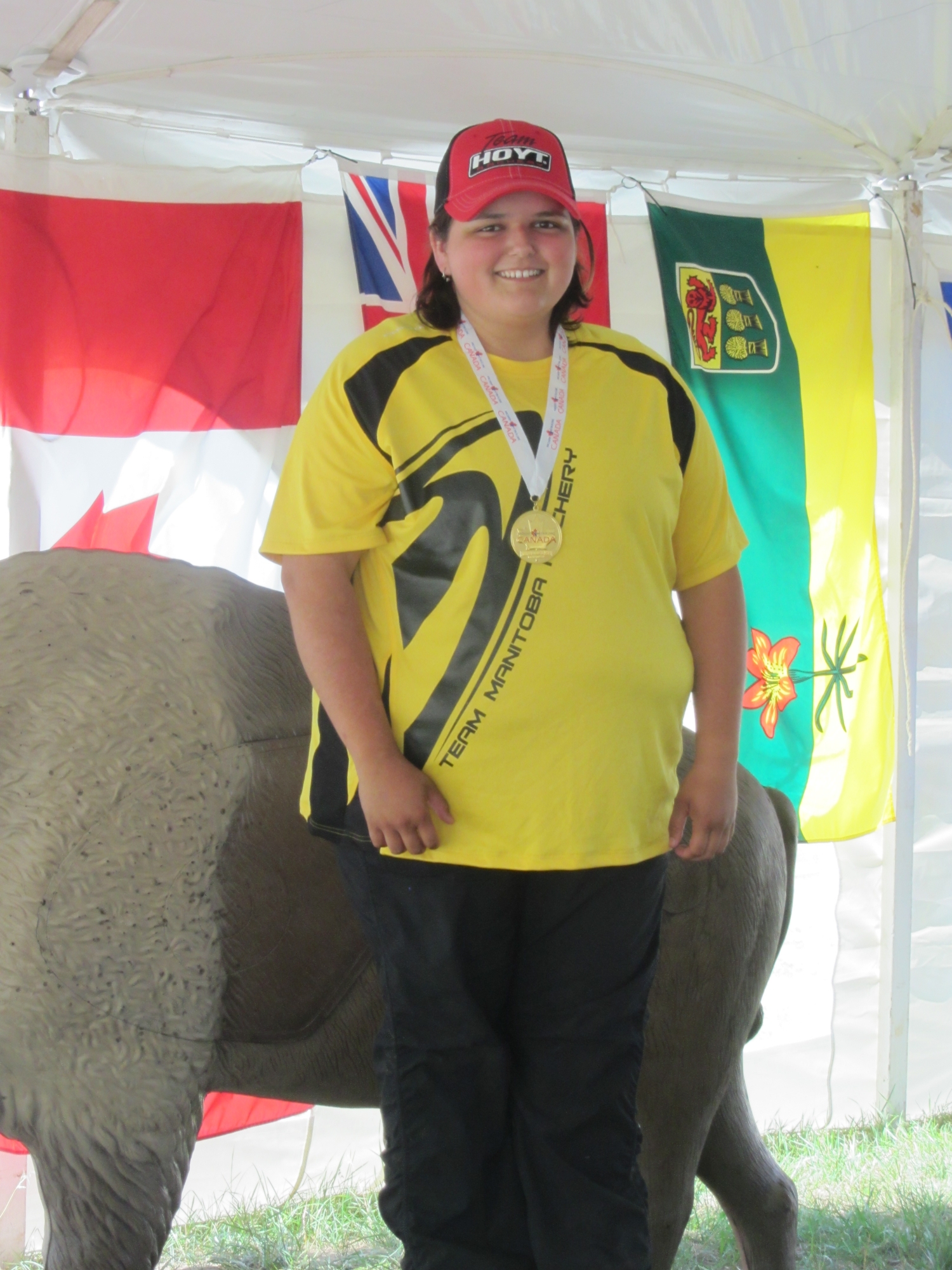
Christie Lavallee 3-D Archery
Christie Lavallee overcame a brain tumor to rise to the top level of 3-D Archery despite having permanently lost vision in one eye. She was named Manitoba Archer of the Year by the Archers and Bowhunters Assoc. of Manitoba and received the national Youth Inspire Award in 2014.
In 2015, at a prestigious Reinhart R100 Tournament Tour event in Yankton, South Dakota, Lavallee took the top female score in 3-D Archery, competing against the best archers in the world.
She won the National 3-D Archery Championship twice: once in 2013 and again in 2015 when she won both the National and Provincial indoor cup and the Provincial Outdoor title.
Lavallee grew up in the Metis community of St. Ambroise, MB and has been recognized for her work with youth and commitment to the preservation of Metis culture.
"I am blind in my right eye and have only 40 per cent of my sight remaining in my left eye with no peripheral vision or depth perception," Lavallee says. "But I don't let it beat me. It will never beat me."
(With permission of A History of Excellence: The Untold Stories of Manitoba's Indigenous Sport: C. Lamoureux, S. Taylor and J. Forsyth, 2021)
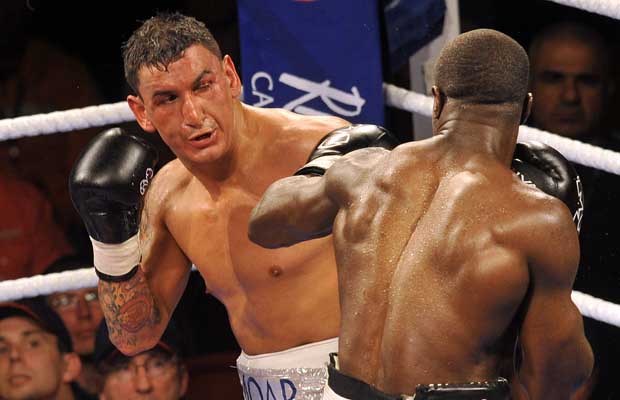
Junior Moar Boxer
From his early years in the ring, boxer Ralph (Junior) Moar was a bright star who became Canadian Light-Heavyweight Boxing champion and represented Canada in many international tournaments.
He grew up Winnipeg's North End. His mother, Yvonne, is from Misipawistik Cree Nation and Grand Rapids, and his father, Ralph, is Métis from Crane River, Manitoba.
Moar won many amateur tournaments including the Golden Gloves and Silver Gloves. He took the Canadian amateur title at 18-years-old and turned pro in 2000.
After a period out of the ring, Moar moved to British Columbia in 2005 and trained with former Canadian Olympian Manny Sobral.
Moar earned the Canadian Light-Heavyweight title in a fight with Abdullah Ramadan in 2009. He defended his crown against Billy Bailey in 2010 and again in 2011 in a battle against Michael Walchuk.
Moar became the American Boxing Federation's new champion in 2011. In a fight in Uganda, he beat champion Joey Vegas for the WBC Intercontinental belt. The win earned him the 14th spot in the WBC Top 15 World rankings.
Moar defended his light-heavy weight title a third time before retiring in 2014.
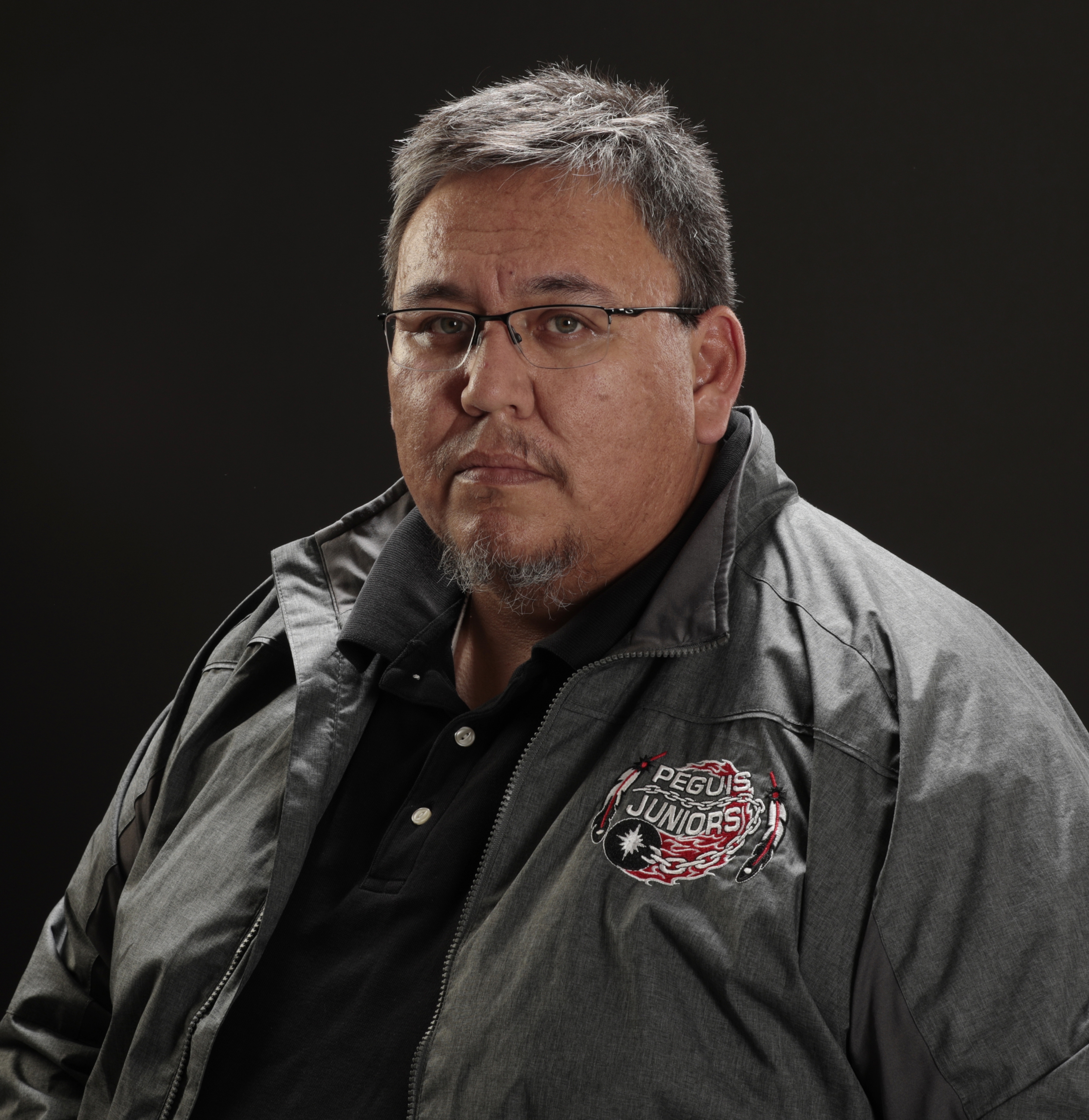
Kevin Monkman Coach of Winning Teams
In his distinguished coaching career, Kevin Monkman has taken Team Manitoba to gold twice at the National Aboriginal Hockey Championships (NAHC) and guided many other young Aboriginal men and women to success on the ice.
Monkman grew up in Vogar, Manitoba and played minor hockey in Ashern, Peguis and Dauphin.
He played for the Peguis Juniors (KJHL) for three years, and was a member of the AAA U18 Parkland Rangers in Dauphin.
Monkman played Junior hockey with the Southeast Blades (1993-94), Dauphin Kings (1994-95) and the Portage Terriers (1995-96) (MJHL).
He attended Red River College and works for Manitoba Hydro in Winnipeg.
Monkman was assistant coach of the Southeast Blades, (now called the Steinbach Pistons), (2001 and 2002) and head coach of the KJHL Fisher River Hawks (2014 and 2015). As head coach of the Peguis Juniors (2016, 2017, 2018), he led the team to three-straight KJHL championships.
He was a scout for OCN Blizzard and the Dauphin Kings.
In his first year as assistant coach of the Prairie Blaze, the team won both the 2018 MWJHL championship and Hockey Manitoba Provincial Women's Junior title.
With Monkman as Team Manitoba coach, the men won two gold medals (2017, 2019) and two bronze at the NAHC (2016 and 2018).
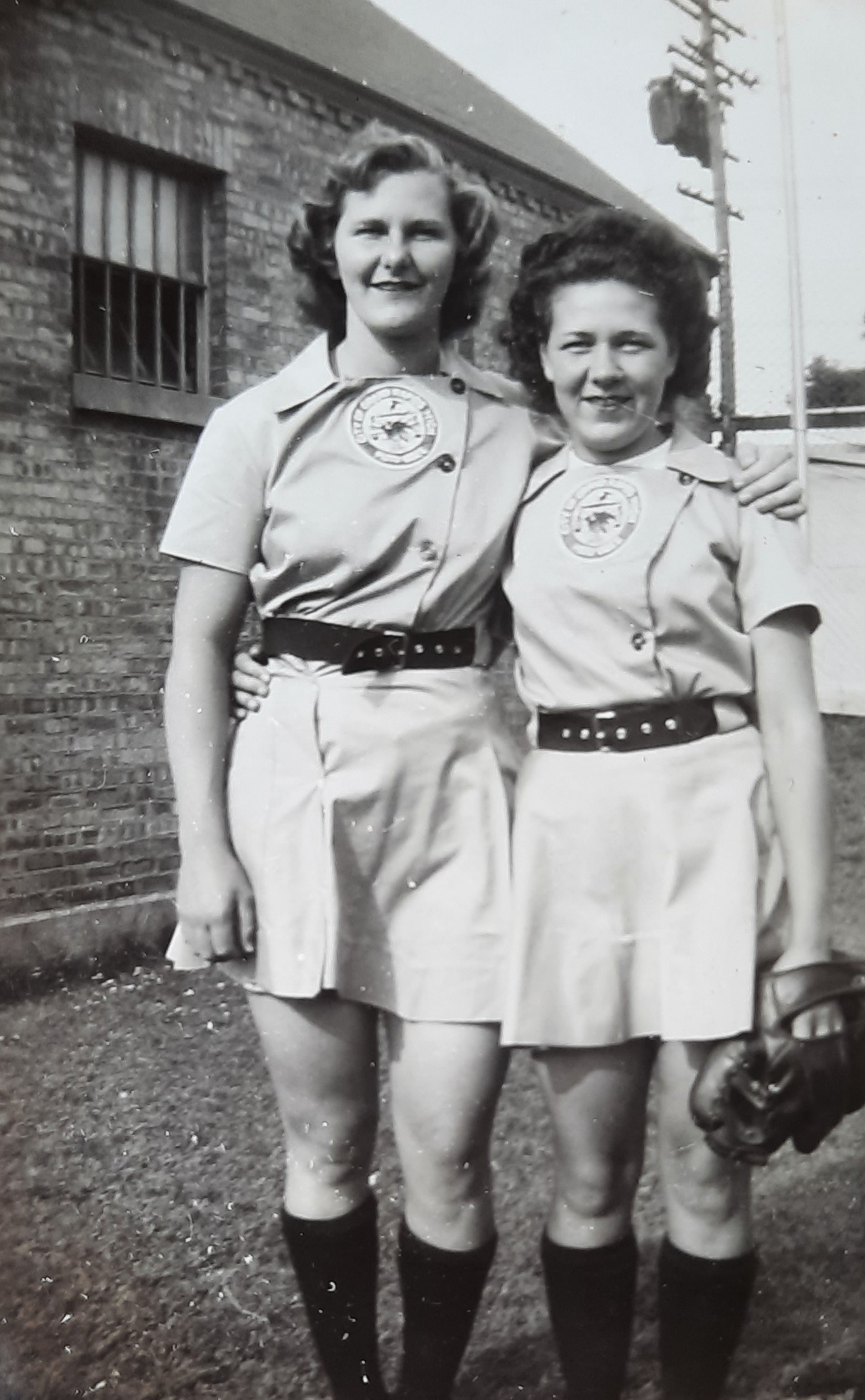
Both Winnipeg-born, pitcher Audrey Haine Daniels (left) and catcher Yolande Teillet Schick played for the Fort Wayne Daisies and the Grand Rapids Chicks (AAGPBL).
Yolande (Teillet) Schick AAGPBL Baseball
Winnipeg-born Yolande "Yo-yo" (Teillet) Schick was an outstanding catcher for the St. Vital Tigerettes and one of the first Métis women to play professional baseball. She was the youngest woman to play in the All-American Girls Professional Baseball League (AAGPBL); a league formed during the Second World War when many male players were overseas.
Schick was scouted to play professional baseball when she was 16-years-old and played for three teams from 1945-1947. She was catcher for Indiana's Fort Wayne Daisies who ended their season second in the league. The next season she was a catcher and outfielder in Michigan for the Grand Rapids Chicks, who finished with 72 wins. In her final season, she played for Wisconsin's Kenosha Comets before returning to Winnipeg and her spot on the Tigerettes.
Yolande Schick was the granddaughter of Joseph Riel, younger brother of Métis leader Louis Riel.
Schick was inducted into the Canadian Baseball Hall of Fame in 1988 and died in Winnipeg in 2006.
Contact Us
105-145 Pacific Avenue
Winnipeg, Manitoba, Canada, R3B 2Z6
x 204-925-5737 A mel.whitesell@masrc.com